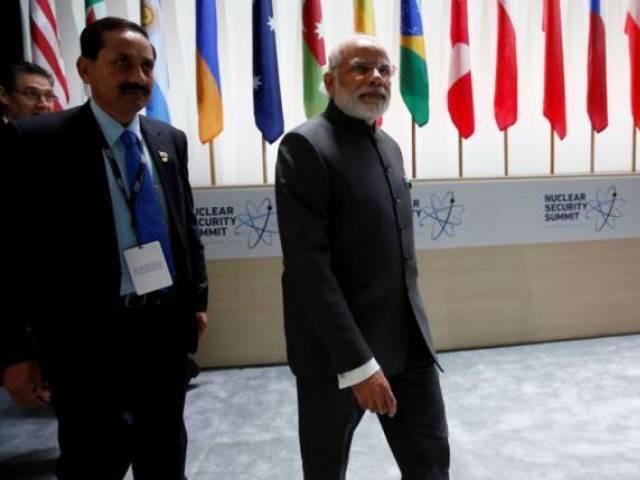A line is drawn
Decision against India's entry into NSG is a setback for those promoting a doctrine of exceptionalism for India

ndia's Prime Minister Narenda Modi arrives for the first plenary session of the Nuclear Security Summit. PHOTO" REUTERS
The decision is something of a setback for those countries promoting a doctrine of exceptionalism for India, principally the US along with Japan and a handful of other Western states. The signature of the NPT is increasingly going to be the key to a range of trading opportunities and not just nuclear, and will define a group of have or have-not nations. There appears to be sufficient unity among those that oppose exceptionalism to ensure that an NPT signature is going to remain the primary NSG passport — along with four other requirements. The non-NPT states are going to find it difficult to move to compliance. India has spun the failure as all being down to Chinese opposition — not true, and whilst there may be differences between some of the states opposing the admission of the non-NPT signatories, there remains a bloc of sufficient size and heft to hold the line. For the time being, there the matter rests, but it will not be the last of it. The US in particular will continue to press for Indian exceptionalism and Pakistan will seek to advance its case as well. As the geopolitics of the region shift with China and the US both jockeying for position, relations between India and Pakistan are ever more crucial to peaceful strategic outcomes.
Published in The Express Tribune, June 26th, 2016.
Like Opinion & Editorial on Facebook, follow @ETOpEd on Twitter to receive all updates on all our daily pieces.















COMMENTS
Comments are moderated and generally will be posted if they are on-topic and not abusive.
For more information, please see our Comments FAQ